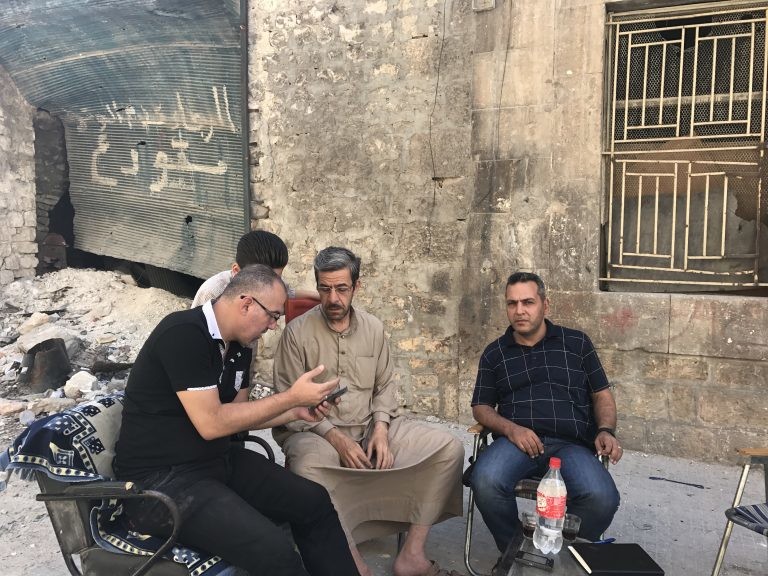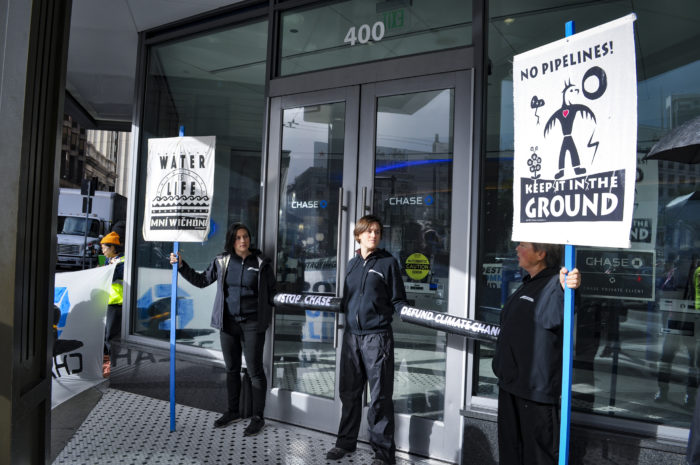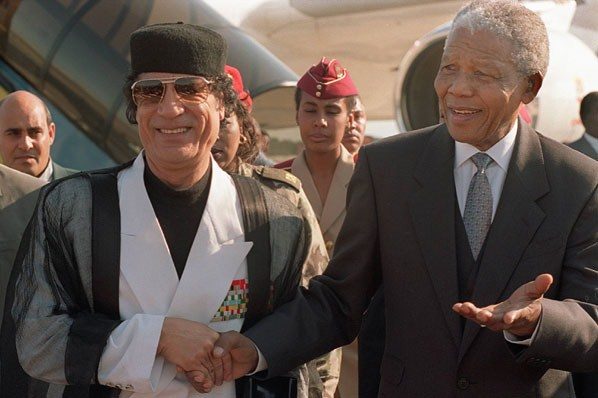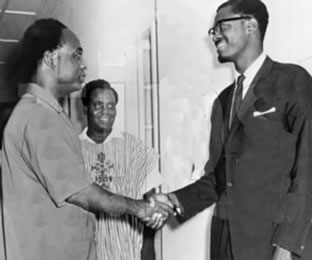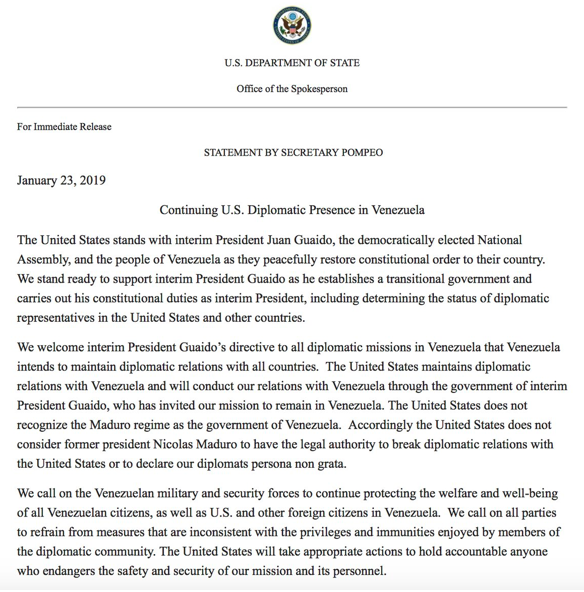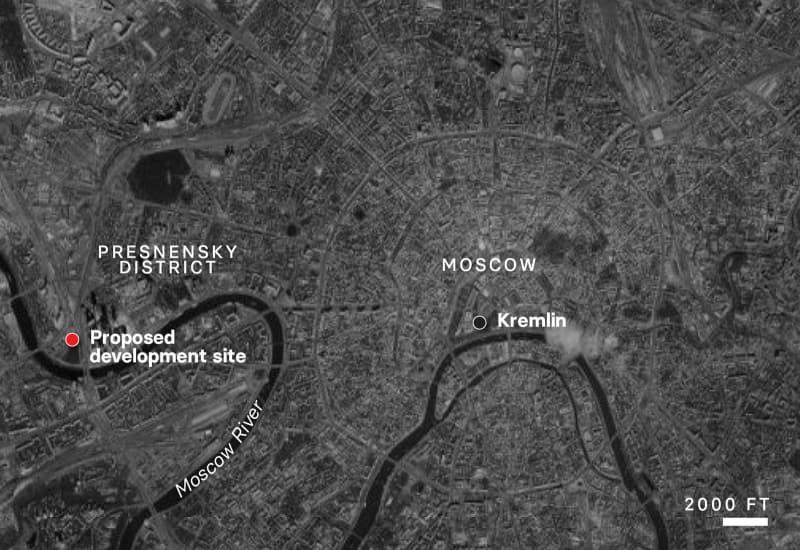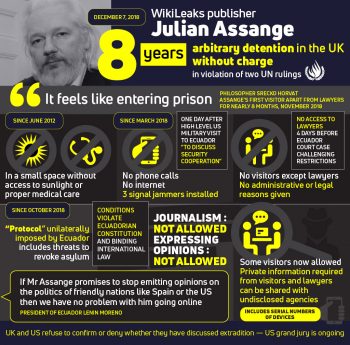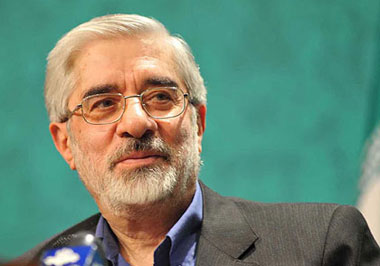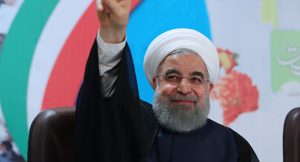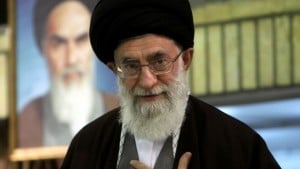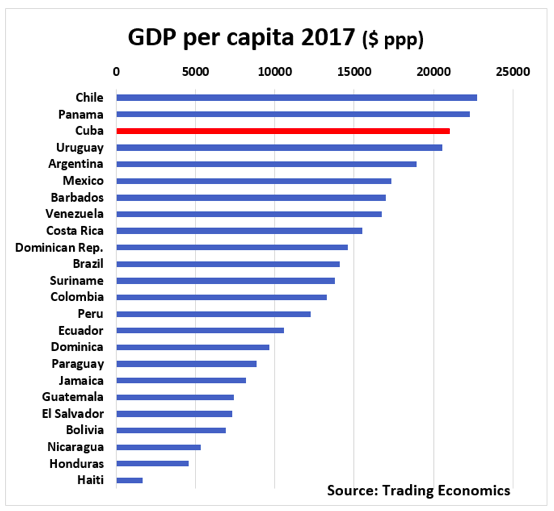How do we know that every single allegation of Syrian Government use of chemical weapons use (2013 to 2018) was a fabrication? By ignoring, so far as possible, the propaganda storm of the warring parties and focusing on independent evidence and admissions.
Millions of words have been written about chemical weapons in Syria, and many people are still confused. How can the average person understand this controversy? Rather than debate each incident, I suggest some basic forensic principles can help us ‘cut to the chase’. In particular, we should ignore the endless partisan stories and pay more attention to the genuinely independent evidence.
I investigated and wrote about the early stages of this issue back in 2013, then published a chapter on it in my 2016 book The Dirty War on Syria. I concluded that the August 2013 incident in the East Ghouta was fabricated by the anti-government ‘jihadist’ groups, in an attempt to attract greater NATO support, as had happened in Libya.
In a diplomatic move, Russia persuaded Syria to give up its actual chemical weapon stock (held as a deterrent against Israel) and indeed that stockpile was certifiably destroyed in 2014. But this did not put an end to the allegations. Similar accusations came from the sectarian Islamist groups, particularly in 2017 and 2018, as the Syrian Army drove them out of the country’s cities. Western governments and their media once against raised a ‘weapons of mass destruction’ cry.
First of all we are entitled to consider the circumstances of all these claims. We must be sceptical, because many were fooled by the false claims over ‘weapons of mass destruction’ (WMD) in Iraq. The ‘chemical weapons’ allegations are similar, in that they refer to banned WMDs and seem to provide a pretext for military intervention. These are claims promoted by the same states that ran WMD stories against Iraq. Other extraordinary allegations were argued to justify the NATO bombing of Libya. In each case exceptional claims have been used to justify (or cover up) what would otherwise be seen as transparent aggression.
Second, regarding Syria, we should note that none of the chemical weapons claims were linked to any conventional military objectives. Such weapons are simply unsuited to urban warfare. This was different to the circumstances of the Iran-Iraq war of the 1980s. There the US helped Saddam Hussein use chemical weapons against Iran’s mass troop movements (‘human waves’), and against the Faili Kurds of Halabja, who were armed by Iran (Harris and Aid 2013; Tan 2008).
I suggest that some standard legal-forensic principles can help us disentangle the claims and counter-claims. These involve (a) identifying interested parties, and discounting their promotional ‘evidence’ as ‘self-serving’; (b) identifying genuinely independent evidence, whether from witnesses or technical experts; and (c) making use of ‘admissions against interest’. These are standard concepts in criminal law.
In practice it means putting to one side ALL the claims and arguments of interested parties. That is, ignore everything said by the Syrians, Russians, Iranians and their media; and put aside everything said by the armed groups and their supporters, that includes the governments and media of the USA, Britain, France, Saudi Arabia, the UAE, Qatar, Turkey and Israel. We also have to ignore paid agents of the warring parties, such as the Aleppo Media Centre (paid by NATO governments), the Syrian Observatory for Human Rights (paid by Britain), ‘Bellingcat’ (paid by the US Government) and others. This includes Human Rights Watch and Amnesty International, which have both help sell false pretexts for intervention and war. For example, Amnesty International had backed the false ‘incubator babies’ story that helped drive the first Gulf war against Iraq; they backed (but later retracted) false allegations against Libyan President Muammar Gaddafi; and in 2012 they praised the NATO occupation of Afghanistan (Anderson 2018).
What do we have left? Genuinely independent evidence! Let’s look at that in the four most publicised chemical weapons claims: Khan al Asal (2013), East Ghouta (2013), Khan Sheikoun (2017) and Douma (2018).
Image on the right is from American Herald Tribune
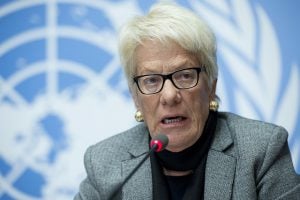
The first alleged use of sarin gas in Syria was in April 2013 at Khan al Asal, on the western outskirts of Aleppo city. The Syrian government reported to the UN that anti-government armed groups had used sarin gas, killing 25 and wounding dozens more, both soldiers and civilians. In May 2013 investigator Carla del Ponte confirmed that the UN had evidence of the ‘rebel’ use of sarin gas. Also in May 2013 Turkish police reported finding a 2kg canister of sarin, after raiding the homes of Jabhat al Nusra (al Qaeda) members in Turkey (Anderson 2016: 199-201).
The UN eventually sent weapons inspectors to Damascus, in August 2013. However, just as these inspectors arrived in Damascus, a sarin incident was staged in the East Ghouta area. Video and photos were published of sick or dead children, and the armed groups and their sponsors blamed the incident on the Syrian Army. Syria denied it. The armed groups claimed up to 1,400 were killed, but only eight bodies were reported buried. Syrians questioned the origins of the pictured children, as the area in question had long been a war zone and ghost town, with no schools. It was suspected that these may have been kidnapped children (ISEAMS 2013). This incident overshadowed and delayed the Khan al Asal investigation, and led to an international crisis which was partly resolved by the Russian proposal to destroy Syria’s chemical stockpiles.
UN Investigation of this second major allegation, the August 2013 East Ghouta incident, was given priority over the earlier Khal al Asal investigation. Nevertheless, in December 2013 the UN team presented a report on those and other reported incidents of that year. Because of divisions at the Security Council, the investigators were asked to report on the actual incidents, but without seeking to cast blame. They found that chemical weapons had been used on five occasions (Khan al Asal, East Ghouta, Jobar, Saraqueb and Ashrafieh Sahnaya), and on three of those occasions they were used against soldiers (UNMIAUCWSAA 2013). Only the armed groups were attacking Syrian soldiers. That finding discredited a key argument from the Obama White House, that only the Syrian government had the capacity to launch a sarin attack.
Image below: Seymour Hersh
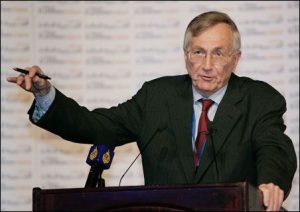
Two additional independent reports undermined the August 2013 accusations. A January 2014 report by MIT scientists Richard Lloyd and Professor Theodore Postol found that the improvised rockets used had a range of only 2 kilometres and so “could not possibly” have been fired at the East Ghouta site from any of the closest Syrian Army positions, as had been suggested by the White House report. Richard Lloyd had been a UN Weapons Inspector, while Professor Ted Postol had been a forensic advisor to the US military. Their independence was unquestionable. A third independent report came from famous investigative journalist Seymour Hersh. His report (‘Whose Sarin’, December 2013) found that many in the US intelligence community did not believe the White House report, which omitted all reference to the evidence of sarin possessed by Jabhat al Nusra (al Qaeda).
“When the attack occurred al Nusra should have been a suspect, but the [Obama] administration cherry-picked intelligence to justify a strike against Assad,” wrote Hersh.
So, when stripped of the clamour from the warring parties and their supporters, the independent evidence of East Ghouta incident of August 2013 lines up against the al Qaeda groups, which controlled much of the East Ghouta area and wanted a pretext for greater military assistance from NATO.
We can apply the same principles to the third highly publicised incident, the alleged sarin attack on Khan Sheikoun (Idlib). This served as the pretext for President Trump’s 7 April 2017 missile attack on Shayrat airbase in Syria. By this time Syria, with help from Russia and Iran, were driving back the armed ‘jihadists’. These groups and their supporters, in particular the US government and various paid ‘information activists’ claimed it was an attack by the Syrian airforce; the Syrians denied it.
What did the independence evidence say? Once again Professor Ted Postol issued a report, the main focus of which was White House reports from the Trump administration. After analysing the allegations, video and wind evidence he issued a rebuttal which said: “the nerve agent attack described in the White House report did not occur as claimed. There may well have been mass casualties from some kind of poisoning event, but that event was not the one described by the WHR” (Postol 2017a). Once again Syrians suspected kidnap victims were being used for these ‘false flag’ attacks. Later Postol issued a second and a third report. Taking into account further information argued by the jihadists in Idlib, and other US allies, he concluded: “the WHR was fabricated without input from the professional intelligence community” (Postol 2017b).
In the Khan Sheikhoun case US agencies used each other to lend the appearance of ‘corroboration’. So the US and UK funded groups, the White Helmets, provided ‘evidence’ of the Sarin attack to both the UN’s OPCW and to the US group Human Rights Watch (2017). Funded by the UK and US governments, there is substantial photographic and video evidence that The White Helmets are close affiliates of the armed Islamist groups in Syria, including Jabhat al Nusra and ISIS/DAESH (Beeley 2018; Hands Off Syria 2019). However for the purpose of this analysis it is sufficient to observe that their major funders are the governments of the UK and the USA, active parties in the war against the Syria Government. That alone disqualifies the White Helmets as a source of independent evidence. Nor is Human Rights Watch (HRW) an independent NGO. It is closely linked to the US foreign policy elite, and its leader Kenneth Roth has issued a series of demonstrably false claims about Syria, during the long war (Anderson 2018).
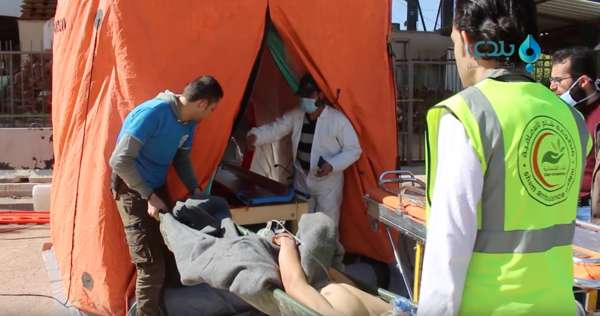
Victims of the sarin attack in Khan Sheikhoun (Source: One News Page)
The OPCW would later report that there had been use of a “sarin like substance” in Khan Sheikhoun (OPCW 2017). However even here they relied on evidence provided by the White Helmets, as no-one from the OPCW visited the site. This problem was discussed by another clearly independent expert, former UN weapons inspector Scott Ritter. Prior to the 2003 invasion of Iraq, Ritter had warned that Iraq had no significant weapons of mass destruction. He was ignored then, but was later proven correct. In mid-2017 Ritter wrote that the Human Rights Watch claim that “the material cause of the Khan Sheikhoun event is a Soviet made KhAB-250 chemical bomb” must be false as: “if a KhAB-250, or any other air delivered chemical bomb had been used at Khan Sheikhoun, there would be significant physical evidence of that fact, including the totality of the bomb casing, the burster tube, the tail fin assembly and parachute” (Ritter 2017).
The OPCW was therefore:
“in no position to make the claim … [that] a sarin like substance was used at Khan Sheikhoun, a result that would seemingly compensate for both the lack of a bomb and the amateurish theatrics of the rescuers” (Ritter 2017).
The main reason for this was that there was a broken ‘chain of custody’ in taking samples from the site, out of Syria to the OPCW (Ritter 2017). That act was carried out by the obviously non-independent White Helmets.
We see once again that, when the shrill propaganda is removed, and we pay attention to genuinely independent and qualified voices, we can see the makings of another ‘weapons of mass destruction’ scandal. The partisan sources mislead us.
The fourth and final widely-publicised, alleged chemical weapons incident was said to have been carried out just as the Syrian Army was about to liberate the city of Douma from al Qaeda and its allied ‘jihadists’. This was the alleged 7 April 2018 attack on Douma hospital. Notice that the Syrian Army, by this time, with Russian and Iranian help, had been steadily driving the armed groups out of the urban centres. Once again, any military rationale for the use of chemical weapons was absent. Yet that is what the Douma-based ‘Army of Islam’, the banned Jabhat al Nusra and their western sponsors claimed.
Once again the armed groups and their White Helmet partners issued video which showed people rushing around the hospital reception area, washing people including children with water. The White House and associated media and paid agencies (including the BBC, CNN, Bellingcat and the US-based ‘Syrian American Medical Society’) repeated the jihadists’ stories. The ‘Army of Islam’ media group, the Ghouta Media Centre, put out the story that ‘hundreds’ were killed and injured by a “barrel bomb containing sarin” (Embury-Denis 2018). A White House statement duly affirmed:
“The United States assesses with confidence that the Syrian regime used chemical weapons in the eastern Damascus suburb of Duma on April 7, 2018, killing dozens of men, women, and children … information points to the regime using chlorine in its bombardment of Duma, while some additional information points to the regime also using the nerve agent sarin” (White House 2018).
Most western media ran with this. Later the story would be revised to a ‘chlorine bomb’, after a photo of an unexploded tank was shown in a building.
After the Syrian Army took control of Douma, one of the children in that video would denounce the story, saying he was effectively dragged into his unexpected film role and experienced no toxic chemicals. Yet, because he contradicted the jihadists claims, western media suggested he might have been an “unwitting pawn” (Barker 2018). However, as well as this unwilling ‘victim’, no less than twelve hospital staff told media in Damascus that no chemical attack took place. Several of them were flown to The Hague to repeat this evidence. These doctors and nurses said, in various ways, that there had been an extended filmed commotion at reception; but there had been no air attack on the hospital, there were no fatalities and there had been no chemical weapons (RT 2018b). The British Guardian called this an ‘obscene masquerade’, organised by Russia. Western agencies claimed that these witnesses had probably been pressured by the Syrian Government (Wintour 2018). Before this particular controversy is dismissed we might observe that hospital staff in Douma could not have survived had they been government sympathisers. It is well known that both religious minorities and government supporters were murdered by the Army of Islam and Jabhat al Nusra. In that sense those medical staff were likely quite independent.
In any case, not long after the area was liberated the UN’s OPCW went in and made their report. First they found no trace of any nerve agent: “no organophorphorous nerve agents or their degradation products were detected” (OPCW 2018). So much for the claims from the ‘Ghouta Media Centre’ and the White House. But what about the chlorine backup story? The UN team did find “various chlorinated organic chemicals … from two sites”. However “the FFM cannot confidently determine whether or not a specific chemical was used as a weapon” (OPCW 2018). This report was misused by some media to pretend that the UN group had found that chlorine was used as a weapon. Yet others pointed out that ‘chlorinated organic chemicals’ are found in most households, including as cleaning agents in hospitals. Although under great political pressure in New York, the UN team had rejected the Douma story.
Nevertheless, relying on the general spin over the OPCW report, the BBC (2018) headlined: ‘Douma attack was chlorine gas – watchdog’. This story was a misrepresentation of the OPCW report. It was soon deleted from BBC websites; but not before it had been picked up by several other sites (e.g. MyVueNews 2018).
To wrap up five disgraceful years of chemical weapons propaganda, forensic principles entitle us to look at independent statements, or ‘admissions against interest’, by the warring parties. That includes statements from military leaders in the USA and the UK. US Defence Secretary James Mattis, for example, both before and after the Douma incident, said that he had “no evidence” Syria had used sarin, but was relying on media including social media stories. On 3 February 2018 Mattis was reported as saying: “We have other reports from the battlefield from people who claim it’s been used. We do not have evidence of it. We’re looking for evidence of it” (Burns 2018). In April, just days after the Douma claims, he told the US Congress: “We are not engaged on the ground there so I cannot tell you that we have evidence, even though we certainly had a lot of media and social media indicators that either chlorine or sarin were used” (RT 2018a).
Two former British military leaders expressed their incredulity at the Douma claims, even though those claims had been backed by their government. That fact makes them both independent, as well as qualified. Former SAS commander British General Jonathan Shaw asked:
“Why would Assad use chemical weapons at this time? He’s won the war. That’s not just my opinion, it is shared by senior commanders in the US military. There is no rationale behind Assad’s involvement whatsoever. He’s convinced the rebels to leave occupied areas in buses. He’s gained their territory. So why would he be bothering gassing them?” (Basu 2018).
A similar opinion was expressed and developed further by Lord Alan West, former senior British government security advisor and former head of the British Navy:
“Just before he [President Assad] goes in and takes it [the Douma area] all over, apparently he decides to have chemical attack. It just doesn’t ring true, it seems extraordinary because, clearly he would know that there is likely to be a response from the allies … what benefit is there for his military? Most of the rebel fighters, this disparate group of Islamists, have withdrawn, there are a few women and children left around. What benefit is there is doing what he did [sic]? I find that extraordinary. Whereas we know that in the past some of the Islamic groups have used chemicals, and of course there would be huge benefit for them in labelling an attack as coming from Assad, because they would guess quite rightly that there would be a response from the US, as there was last time, and possibly from the UK and France … The reports that came from there were from the White Helmets who, let’s face it, are not neutrals, you know, they are very much on the side of the disparate groups who are fighting Assad” (NewsVoice 2018).
These are genuinely independent assessments from two military experts. ‘Similar fact’ principles of criminal law entitle us to apply their rationales over Douma to the earlier claims made by the same armed groups in the same area, back in August 2013. That is, there is a pattern of behaviour from these armed groups, involving repeated fabricated claims, to gain greater outside military support. This ‘similar fact’ pattern increases confidence in the evidence that they have indeed been fabricating their claims against the Syrian Army.
When we remove the clamour from the warring parties, their media and paid propagandists, the independent evidence points in one direction: every single claim of chemical weapon use by the Syrian Army was a fabrication. As Lord Alan West said, the al Qaeda aligned groups wanted to attract greater western military support. Western governments and media went along with this extended ‘WMD’ hoax. The scandal served to hide naked US-led aggression against Syria. Western audiences were played, for the second time in a decade, over a ‘Weapons of Mass Destruction’ scam. Most took the bait.
*
Note to readers: please click the share buttons above. Forward this article to your email lists. Crosspost on your blog site, internet forums. etc.
Sources
Anderson, Tim (2016) The Dirty War on Syria, Global Research, Montreal Anderson, Tim (2018) ‘Syria: the human rights industry in ‘humanitarian war’, Centre for Counter Hegemonic Studies, Research paper 1/18, online:
Barker, Anne (2018) ‘Syrian war: The boy at the centre of conflicting tales about alleged Douma chemical attack’, ABC News, 29 April, online: https://www.abc.net.au/news/2018-04-28/hassan-becomes-face-of-information-war-surrounding-syria-douma/9705538
Beeley, Vanessa (2018) ‘Whitewashing the White Helmets – Peter Ford, Former UK Ambassador to Syria Responds to UK Government Statement’, 21st Century Wire, 23 July, online: https://21stcenturywire.com/2018/07/23/whitewashing-the-white-helmets-peter-ford-former-uk-ambassador-to-syria-responds-to-uk-government-statement/
Embury-Denis, Tom (2018) ‘Trump warns of ‘big price to pay’ as he blames Assad, Putin and Iran for alleged Syria chemical weapons attack’, 9 April, The Independent, online: https://www.independent.co.uk/news/world/americas/us-politics/donald-trump-syria-civil-war-chemical-weapons-attack-putin-assad-iran-russia-civilians-killed-douma-a8294806.html
Harris, Shane and Matthew Aid (2013) ‘CIA Files Prove America Helped Saddam as He Gassed Iran’, Foreign Policy, 26 August, online: https://foreignpolicy.com/2013/08/26/exclusive-cia-files-prove-america-helped-saddam-as-he-gassed-iran/
Human Rights Watch (2017) ‘Mounting Evidence Syrian Forces Were Behind Khan Sheikhoun Attack’, 6 September, online: https://www.hrw.org/news/2017/09/06/mounting-evidence-syrian-forces-were-behind-khan-sheikhoun-attack
ISTEAMS (2013) ‘Independent Investigation of Syria Chemical Attack Videos and Child Abductions’, 15 September, online:
Lloyd, Richard and Theodore A. Postol (2013) ‘Possible implications of faulty US Technical Intelligence in the Damascus Nerve Agent Attack of August 21, 2013’, MIT Science, Technology and Global Security Working Group, 14 January, online: https://www.documentcloud.org/documents/1006045-possible-implications-of-bad-intelligence.html
NewsVoice (2018) ‘Admiral Lord West Casts Doubt on Syria Attack Intelligence – BBC News’, 18 April, YouTube: https://www.youtube.com/watch?v=_6sJKKspTEc
OPCW (2018) ‘OPCW issues fact finding mission reports on chemical weapons use allegations in Douma, Syria in 2018 and in al-Hamadaniya and Karm al-Tarrab in 2016’, 6 July, online: https://www.opcw.org/media-centre/news/2018/07/opcw-issues-fact-finding-mission-reports-chemical-weapons-use-allegations
Postol, Theodore (2017a) ‘Khan Sheikhoun, Syria: The nerve agent attack that did not occur’, Global Research, 19 April, online:
Postol, Theodore (2017b) ‘A critique of ‘false and misleading’ White House claims about Syria’s use of lethal gas’, TruthDig, online: https://www.truthdig.com/videos/a-critique-of-false-and-misleading-white-house-claims-about-syrias-use-of-lethal-gas/
Ritter, Scott (2017) ‘Ex-weapons inspector: Trump’s sarin claims built on ‘lie’’, The American Conservative, 29 June, online:
RT (2018a) ‘Mattis: No evidence on Syria chemical attack, but I believe there was one’, 12 April, Youtube: https://www.youtube.com/watch?v=vWlXTBaN1Sc
Tan, Vivian (2008) ‘Feili Kurds in Iran seek way out of identity impasse’, UNHCR, 28 May, online: https://www.unhcr.org/news/latest/2008/5/483d60872/feili-kurds-iran-seek-way-identity-impasse.html
Webb, Whitney (2018) ‘White Helmets Currently Staging “False Flag” Chemical Attack in Idlib’, MintPress News, 11 September, online: https://www.mintpressnews.com/white-helmets-chemical-attack-idlib/249121/
White House (2018) ‘United States Government Assessment of the Assad Regime’s Chemical Weapons Use’, 13 April, online:
Wintour, Patrick (2018) ‘‘Obscene masquerade’: Russia criticised over Douma chemical attack denial’, The Guardian, 27 April, online: https://www.theguardian.com/world/2018/apr/26/obscene-masquerade-russia-criticised-over-douma-chemical-attack-denial
Featured image is from freethoughtproject
The Dirty War on Syria has relied on a level of mass disinformation not seen in living memory. In seeking ‘regime change’ the big powers sought to hide their hand, using proxy armies of ‘Islamists’, demonising the Syrian Government and constantly accusing it of atrocities. In this way Syrian President Bashar al Assad, a mild-mannered eye doctor, became the new evil in the world.
The popular myths of this dirty war – that it is a ‘civil war’, a ‘popular revolt’ or a sectarian conflict – hide a murderous spree of ‘regime change’ across the region. The attack on Syria was a necessary consequence of Washington’s ambition, stated openly in 2006, to create a ‘New Middle East’. After the destruction of Afghanistan, Iraq and Libya, Syria was next in line.
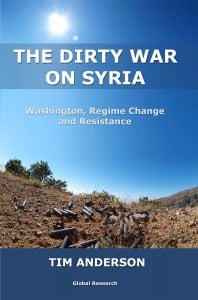
The Dirty War on Syria
by Professor Tim Anderson
ISBN Number: 978-0-9737147-8-4
Year: 2016
Pages: 240
Author: Tim Anderson
List Price: $23.95
Special Price: $15.00
click to purchase, directly from Global Research Publishers

